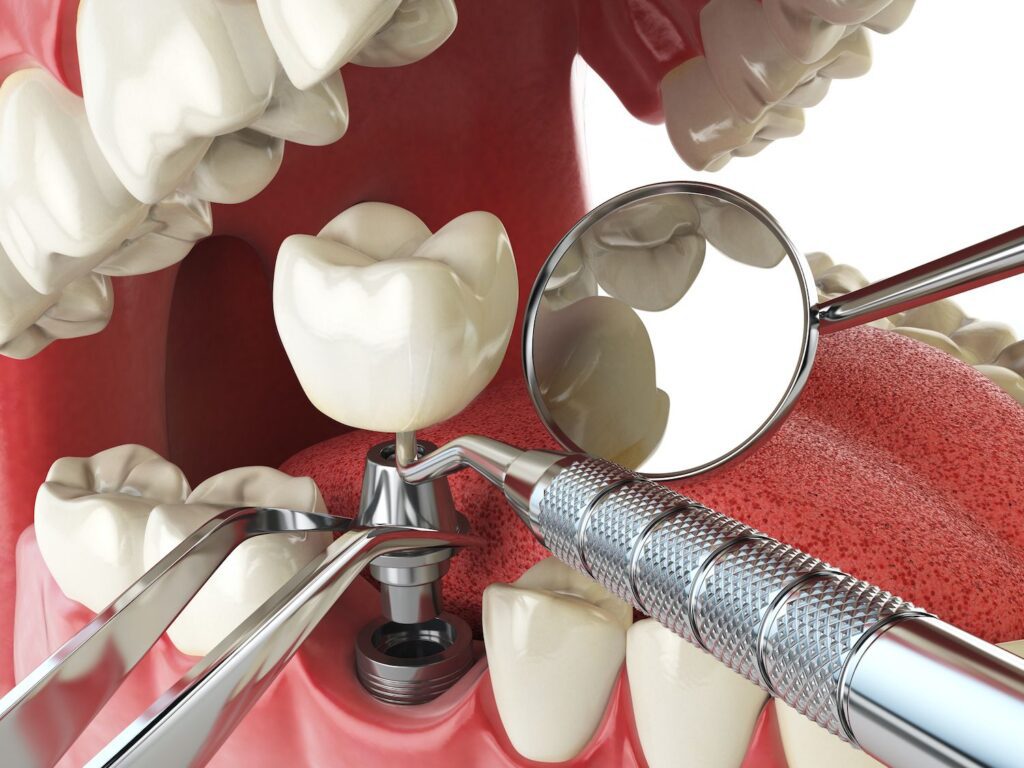Dental implants are a fantastic solution for restoring a natural-looking smile. But, like any investment, they require proper care. One big threat to the success of dental implants is gum disease. There is a strong connection between gum disease and dental implants. It is not just a minor oral health issue. To increase the longevity and effectiveness of your implants, you need to have good gum health.

The Harmony of Gums and Dental Implants
To understand the impact of gum disease on dental implants, let’s first appreciate the harmony between gums and these artificial tooth roots. Dental implants rely on healthy gums to provide a stable and secure foundation. Unlike natural teeth, implants don’t have ligaments or nerves. As a result, the gums are the primary support system.
The Silent Threat of Gum Disease
Gum disease is a silent threat that often goes unnoticed in its early stages. It starts with the inflammation of the gums due to the buildup of plaque. This is a sticky film of bacteria that can destroy your health. As gum disease progresses, it can lead to pockets forming between the gums and teeth. This also creates a breeding ground for harmful bacteria.
Impact on Dental Implants
Gum disease poses a direct threat to the success of dental implants. In the initial stages, inflammation and infection in the gums can compromise the implant’s stability. This will affect its ability to fuse with the jawbone. As the disease progresses, it can lead to bone loss. As a result, it will weaken the support structure for the implant.
What are the Signs?
Being vigilant about the signs of gum disease is crucial to protecting your dental implants. Symptoms include red or swollen gums or bleeding during brushing or flossing. You should also watch out for chronic bad breath and gums that appear to be pulling away from the implants. If you notice any of these signs, it’s vital to seek prompt dental care to prevent further complications.
Oral Hygiene
The key to safeguarding your dental implants from gum disease lies in good oral hygiene. Regular brushing, flossing, and dental cleanings are crucial. For implant patients, you need to follow specific oral hygiene practices, such as using soft brushes and special floss. This can make sure you clean around the implant site thoroughly.
Regular Dental Check-ups
Regular dental check-ups are your frontline defense against gum disease and its potential impact on dental implants. Your dentist can monitor the health of your gums and implants. They can detect early signs of any issues. This will also allow them to provide early treatment to prevent any other problems.
Lifestyle Factors and Gum Health
Certain lifestyle factors can contribute to gum disease and affect dental implants. Smoking, for example, is a known risk factor for gum disease. This can also compromise the success of implants. Maintaining a healthy lifestyle, including a balanced diet and avoiding tobacco products, can positively impact your gum health. This can also help the long-term success of your dental implants.
